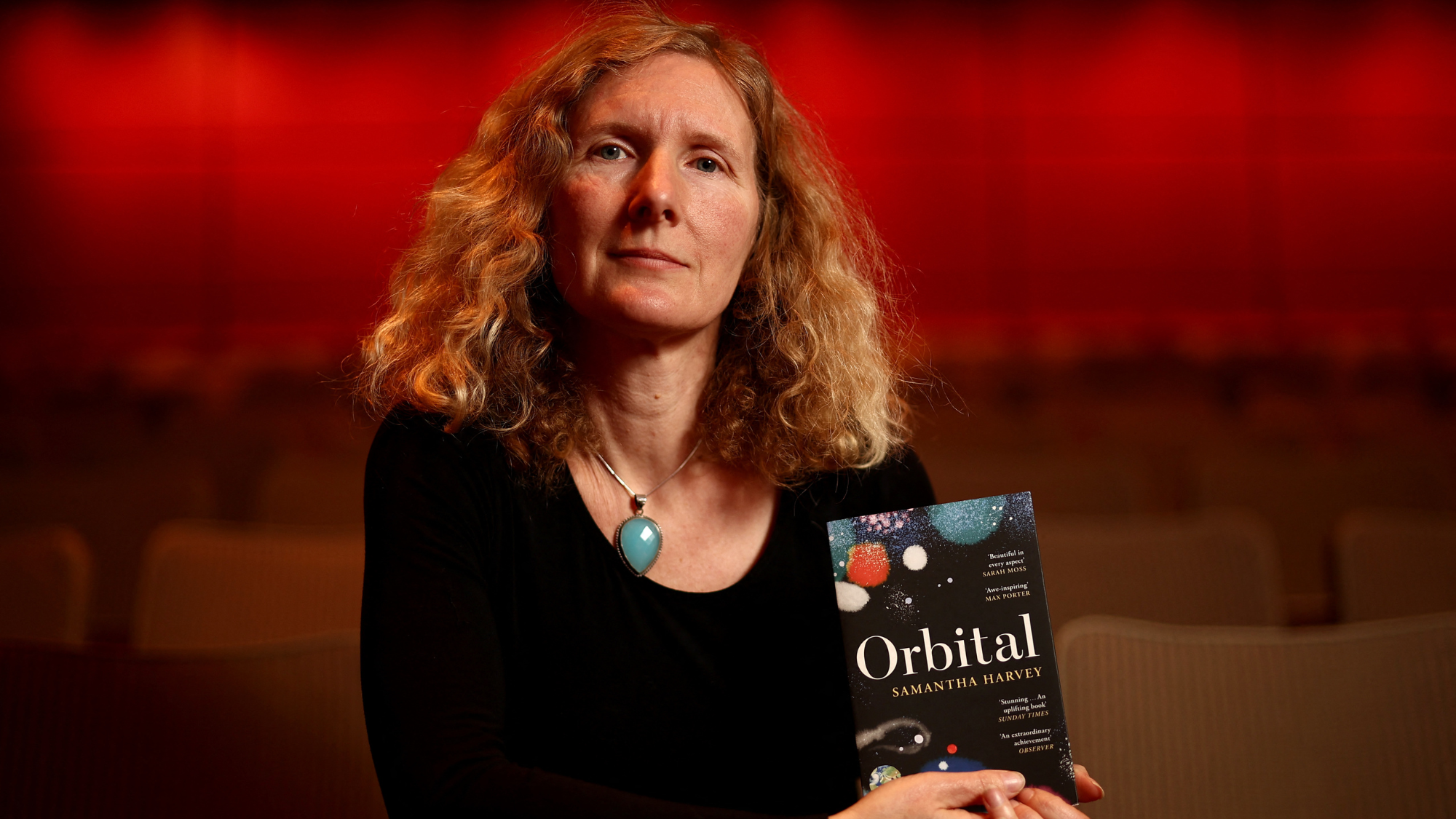Orbital by Samantha Harvey: the Booker prize-winner set to go 'stratospheric'
'Bold' and 'scintillating' novel follows six astronauts orbiting Earth on the International Space Station over 24 hours

A free daily email with the biggest news stories of the day – and the best features from TheWeek.com
You are now subscribed
Your newsletter sign-up was successful
"Heavens above! Finally a Booker prizewinner that we can all get behind," said Johanna Thomas-Corr in The Times. Samantha Harvey has won this year's coveted literary award with her novel, "Orbital".
It's the first book set in space to scoop the prize, and Harvey is the first female author to win the Booker since Bernardine Evaristo in 2019. "It's bold, it's scintillating" and "gloriously imaginative", and "one of the most original novels I've read in a long time".
The 135-page book is the prize's second-shortest winner, and follows six astronauts orbiting Earth on the International Space Station over a single day. A book that "expands the mind and awakens the senses", it has "barely any plot", but contains the "most breathtaking imagery and impeccably poetic prose you'll likely find in any novel this year. It knocked me out."
The Week
Escape your echo chamber. Get the facts behind the news, plus analysis from multiple perspectives.

Sign up for The Week's Free Newsletters
From our morning news briefing to a weekly Good News Newsletter, get the best of The Week delivered directly to your inbox.
From our morning news briefing to a weekly Good News Newsletter, get the best of The Week delivered directly to your inbox.
New horizons
Harvey's book is set to go "stratospheric" after bagging the award, said David Sanderson in The Times. "Orbital" was the biggest-selling book on the shortlist, with "promising sales figures" of 29,000 copies so far this year.
This year's history-making shortlist featured five women including Rachel Kushner and Charlotte Wood. Percival Everett was the only man to make the list with "James" – a reimagining of Mark Twain's "The Adventures of Huckleberry Finn" told from the perspective of the enslaved Jim.
At the ceremony in London's Old Billingsgate on Monday evening, Harvey was awarded the £50,000 prize, which she is planning to spend on a new bike and a holiday to Japan, reported The Guardian. The writer, who penned "Orbital" during the Covid lockdowns while watching footage of the Earth in orbit on her computer, almost threw in the towel.
"I've never been to space, I could never go to space, and there are humans who've been to space who write very lucidly about it so who am I to do this?" she told BBC Radio Four's "Front Row" programme. "I had a crisis of confidence and felt I was trespassing so I gave up."
A free daily email with the biggest news stories of the day – and the best features from TheWeek.com
But Harvey "decided to persevere" and returned to her draft. "Orbital" is her second book to make the Booker longlist – she first made the cut in 2009 with her novel about a widower diagnosed with Alzheimer's, "The Wilderness".
Edmund de Waal, chair of the judging panel, praised "Orbital" as a "beautiful miraculous novel". "With her language of lyricism and acuity, Harvey makes our world strange and new for us."
A worthy winner?
"'Orbital' is no bad winner", said Cal Revely-Calder in The Telegraph. Harvey "sketches the personalities" of the astronauts "with ease" and the resources for her vivid descriptions "run pretty deep". But the novel's "strength is also its curse", and Harvey goes on "orbit after orbit, wondering anew at the same indescribable world". There's "something hollow beneath the style".
You have to ask what Percival Everett needs to do in order to win the Booker. "'James' wasn't even his finest novel" and yet his "intelligent", "agile" story about Jim embarking on a trip down the Mississippi was "still the book of the year".
"I did hold a candle for 'James'", said Thomas-Corr in The Times. "But there's something heartening about 'Orbital''s triumph." As well as being a "serious, sometimes sombre meditation on environmental catastrophe", it contains some "surprisingly funny moments" and is "an appeal to the imagination". Despite having written a diverse range of books over the years, from a mediaeval crime story to a powerful tale about Alzheimer's, Harvey hasn't received much recognition. "This win changes her course."
Irenie Forshaw is the features editor at The Week, covering arts, culture and travel. She began her career in journalism at Leeds University, where she wrote for the student newspaper, The Gryphon, before working at The Guardian and The New Statesman Group. Irenie then became a senior writer at Elite Traveler, where she oversaw The Experts column.